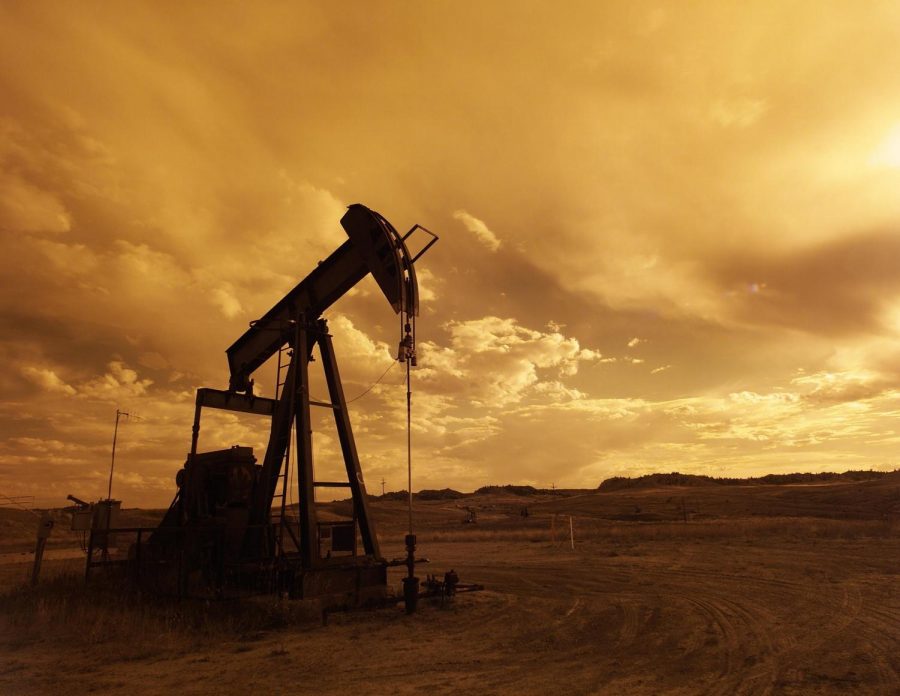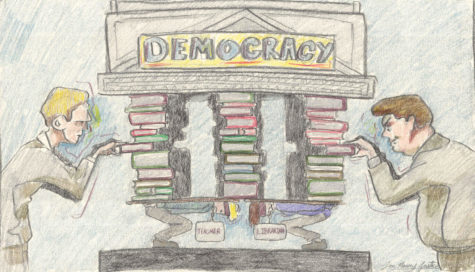OPEC oil cuts could devastate Wyoming economy
Many people have been extremely preoccupied with the news of Covid-19 and the updates that every day brings, which has been drawing attention away from other important matters such as economic concerns, one of them being oil production. Oil is a big source of wealth, not only for the United States economy, but many other economies around the world, and Wyoming in particular.
OPEC, the Organization of the Petroleum Exporting Countries, includes 15 countries, those being Algeria, Angola, Congo, Ecuador, Equatorial Guinea, Gabon, Iran, Iraq, Kuwait, Libya, Nigeria, Qatar, Saudi Arabia, United Arab Emirates and Venezuela. OPEC+ is OPEC in addition to several nations outside of the organization including Russia. In 2017, OPEC+ agreed to cut back on oil production. In December 2019, in response to a further decrease of demand due to the Covid virus, OPEC+ agreed to further reduce production until the end of March 2020.
As a result of the “stay home” orders associated with the Covid-19 pandemic, travel throughout the world has been limited and the demand for oil has been drastically reduced. OPEC+ members met in February to address the issue and decided to cut their oil production by another 9.7 million barrels per day beginning May 1, 2020. The purpose of this reduction was to preserve the oil industry and keep the prices up to stay in business. Most experts agree that these actions are and should be taken to avert an economic disaster in the oil industry. The cut was to be for two months. After those two months, the production was to slowly increase, and return to normal in April 2022.
Unfortunately, Moscow was not present for this meeting and expressed concerns about further reducing oil production and refused to enter into the agreement. As a result, Saudi Arabia initiated a price war with Russia on March 8, 2020. Both countries announced that they would flood the market with oil in April. Many analysts believe that Russia may have taken action to target the United States. “It’s Saudi Arabia against Russia, and Russia against the United States,” said Dan Yergin, vice-chairman of IHS Markit. Every indication was that this increase in oil production would continue at least until June, which is when OPEC+ is next scheduled to meet.
Since that time, oil prices have dropped significantly. In early January, West Texas Crude was selling for $63.27 a barrel. As of April 17, it was trading at $18.27 per barrel. On April 21, 2020, oil futures were negative for the first time in history, dropping as low as -$4.47 per barrel; oil producers had so much oil and nowhere to store it, which led to the need to pay people to take it. Continued drops in oil prices ultimately resulted in Russia and Saudi Arabia ceasing their price war and reducing production.
Gas and oil prices are at the lowest point they have been since early 2002. Continued production combined with a continued decrease in demand will likely result in a huge decline in US oil production. Cuts in the oil industry will be better for global and country economies but also for state economies. Texas is a well known producer of oil, but Wyoming is a great producer of petroleum as well. Wyoming has been greatly impacted by the drop in demand like the rest of the industry.
In 2019, Wyoming collected 20 percent of its taxes from oil alone. On March 9 of this year, oil prices in Wyoming fell by 25 percent, the steepest drop since 1991. Carl Larry is a market development performance director at Refinitiv which is a financial consulting firm. “Nothing like this has ever happened before this fast and this far,” said Larry. Every dollar a barrel of oil drops in price in Wyoming, the state budget takes a $12.5 million impact, as explained by Eli Bebout, chairman of the Senate Appropriations committee. With oil futures dropping below zero, the situation is getting even worse.
Wyoming oil production has dropped drastically. The number of drilling rigs in the state is down from 35 in September to just six on April 20, 2020. Projections for state coffers are grim, with the Legislative Services Office projecting revenue declines of between $555 million to $2.8 billion over the next two years.
“Everybody in Wyoming should be concerned about this,” Governor Gordon said in a statement to the Star-Tribune. Oil is a commodity, which is sold to a market. There is no way to dictate prices in a market. Unfortunately “we need to ride this out,” said R-Lander, Senate Revenue Committee Chairman Cale Case.










